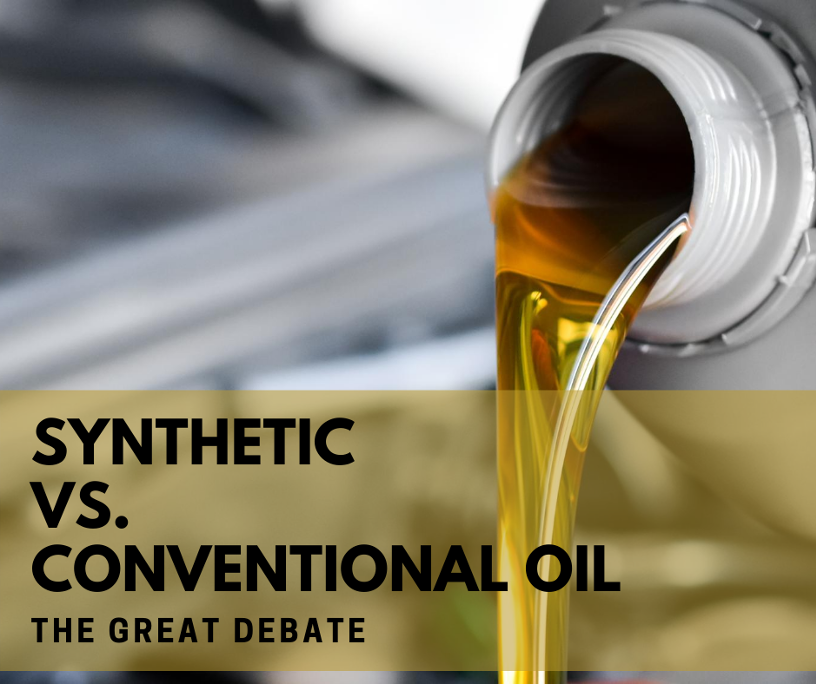
It’s normal to want to save money. After all, you’ve worked hard for it. Why spend more than you have to? However, when it comes to car maintenance, saving a few dollars in the present doesn’t always equate to money savings in the future. This is especially true if you skip important preventative maintenance services like oil changes, for example. It’s also true if you skimp on the quality of parts or fluids used in your vehicle.
One question that often arises is whether or not it’s better to use synthetic oil vs. traditional oil when you DO get that routine oil change. There are definite differences between the two, but ultimately, the choice is yours. Let’s take a look at some features of both so you can make an informed decision and do what’s best for your vehicle.
What is synthetic oil?
You may have seen the term and even heard that synthetic oil is better for your car, but what exactly is it? Simply stated, it’s a man-made oil that uses some of the best properties of conventional oil and combines them into a substance that often out performs its traditional counterpart.
Advantages of synthetic oil
Instead of simply relying on what nature offers, manufacturers have perfected their formulas to create a product that works well in today’s modern vehicles. Here are some of synthetic oil’s best traits:
- More refinement, leading to decreased engine sludge buildup
- Additives within the oil can clean engine deposits
- Better performance in extreme temperatures
- Requires less frequent oil changes
- Can improve your vehicle’s gas mileage
Disadvantages of synthetic oil
Improved fuel economy, a cleaner engine, and fewer oil changes are all great reasons to use synthetic oil, but what’s the downside? Here are the two biggest disadvantages:
- Price – synthetic oil can cost up to four times the price tag of traditional oil.
- Pollution – it’s not found in nature so improper disposal of synthetic oil can lead to pollution.
What is conventional oil?
Conventional oil has been around for a very long time. Basically, it’s crude oil that has been distilled and refined, making it suitable for use in vehicles. In fact, it’s probably the motor oil with which you’re most familiar.
Why use conventional oil vs. synthetic?
If it’s been around for so long, you might be thinking that there has to be some advantage to using conventional oil or it wouldn’t even exist. You’re right! Here are the most popular advantages:
- Cheaper price – less refinement of the oil means it’s less expensive to process and, therefore, cheaper for you to buy.
- Readily available – since it’s relatively easy to produce, it’s not hard to find.
- Reliable lubricant – as long as it’s changed often enough, conventional oil has no problem doing its job as a lubricant.
Conventional oil cons
In case you haven’t already guessed it, one of the biggest disadvantages to using conventional oil is the fact that it’s not as refined as synthetic oil. That means more chances for sludge buildup inside the engine, which can lead to costly repairs if left alone. While it’s cheaper up front, using conventional oil means more frequent oil changes to keep it clean and fresh.
Synthetic oil vs. conventional oil – the choice is yours
Once you’ve thoroughly weighed the pros and cons of each, you can make an informed decision about which oil to use. Unless, of course, your type of vehicle dictates which oil must be used. Eliminate any uncertainty by checking with your trusted auto mechanic. Then, determine the appropriate interval between oil changes and schedule an appointment when needed!
Schedule My Appointment Now!
